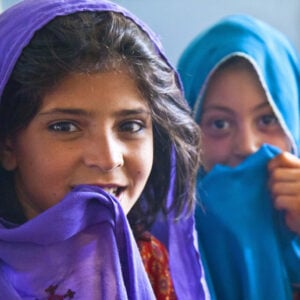UNESCO, in partnership with the Government of Himachal Pradesh, has marked a key milestone in the HP-FUTURES (Foundation for Upskilling, Teacher Excellence, Understanding, Readiness, Equity, and Sustainability) project with the conclusion of its First Steering Committee Meeting. The meeting finalised the work plan and set key directions for implementation, aiming to reach 124 schools, including those in remote and tribal areas. The session was chaired by Shri Rakesh Kanwar, Education Secretary of Himachal Pradesh, and guided by Shri Rajesh Sharma, State Project Director for Samagra Shikasha, in the presence of UNESCO officials at the State Secretariat.
Shri Rakesh Kanwar emphasized the importance of inclusive training, stating that everyone from principals to midday meal workers should be involved to ensure shared understanding of the project’s goals. He noted that Himachal Pradesh is the first state implementing HP-FUTURES, and the lessons learned will have far-reaching relevance across India. Shri Rajesh Sharma highlighted the need to integrate UNESCO’s vision of greening the curriculum while embedding values of inclusion, respect, and equity through sports-based learning.
The project brings together key stakeholders, including the State Department of Education, SCERT, and educational foundations such as Convegenius, Magic Bus Foundation, Macmillan, and Bharti Airtel Foundation. Its objective is to strengthen teachers’ capacities in competency-based education (CBE) through a three-pronged approach: equipping learners with 21st-century skills, introducing Values Education through Sport (VETS), and integrating climate education into classrooms via the Greening the Curriculum initiative.
Formalized under a Memorandum of Understanding signed on 26 March 2025 in the presence of Himachal Pradesh Chief Minister Shri Sukhvinder Singh Sukhu, HP-FUTURES aligns with India’s National Education Policy (NEP) 2020 and the National Curriculum Framework (NCF) 2023. UNESCO will assess existing policies and programs on 21st-century skills to develop teacher training modules for a statewide rollout. These modules will focus on critical thinking, problem-solving, communication, digital literacy, and Technical Vocational Education and Training (TVET) programmes, ensuring students gain practical, work-ready skills.
Through the Sports Values in Every Classroom Toolkit (SVIECT), the project aims to instill inclusion, respect, and equity in students while reinforcing social-emotional learning alongside academic growth. In parallel, the Greening the Curriculum component will support schools in integrating climate education, strengthening eco-clubs, and aligning with global green education standards, including the Green School Quality Standard.
Tim Curtis, Director & Representative of UNESCO Regional Office for South Asia, noted that the HP-FUTURES project integrates 21st-century skills, sports values, and climate education to prepare students for real-world challenges and foster personal and professional growth.
The project’s success relies on training educators as “master trainers” and building partnerships with district education officers, subject experts, local education leaders, parents, and civil society organisations. The next stakeholder consultation meeting is scheduled for 23 September 2025 in Shimla to further strengthen collaboration and implementation efforts.






